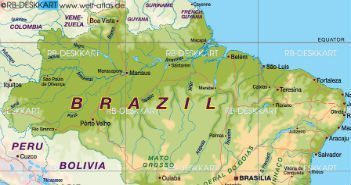The merger between Colombian state telco UNE and Millicom’s Colombian unit Tigo has received approval from the country’s regulator for industry and commerce, the SIC. Once merged, they will account for 135 megahertz of spectrum, and the SIC has determined that the companies should return 50 megahertz. They will have eight months to inform the government which blocks of spectrum they will return, and another 28 months to complete the return process.
Millicom is reviewing the SIC’s approval which includes conditions on the use of spectrum. Millicom International Cellular and EPM (Empresas Publicas de Medellin), the largest UNE shareholder, first announced that they had entered into exclusive negotiations about the possible combination of their Colombian telecom operations on Feb. 5, 2013.
The proposed merger is also being considered by two other regulatory bodies, one concerned with television (ANTV) and the other with finance (SIF). The agencies decisions are expected soon which could allow the transaction to take effect in the second quarter.
TIM moves: The board of the Brazilian unit of Telecom Italia, TIM, recommended that the company bid in the upcoming auction of the 700 MHz frequency for LTE. The board said that TIM should actively participate in the public consultation process as well as in all the following preparation stages for the frequency auction.
TIM is also starting the proposal review and analysis process for selling its cell phone towers. The move is aimed at getting more value for the company’s assets while at the same time improving efficiency.
In addition, the telco announced it is partnering with Waze to offer its traffic and navigation app for free to TIM customers. New handsets sold by TIM will have the application embedded.
Mexico’s smartphones: With 104 million mobile lines, Mexico counted a total of 104 million mobile lines at the end of 2013, with smartphones accounting for 36.4 million of those lines, which was a 49.1% increase year-over-year, according to a report released by the analyst firm Competitive Intelligence Unit. Samsung lead with 25% of the market at the end of 2013, followed by BlackBerry (16%) and Nokia (15%). Apple had a 13% market share. As for operating systems, Google’s Android had 52.3% of the Mexican market.
Telecom investments: Brazilian CSPs invested a total of $11.83 billion in 2013, with the telecommunications industry posting gross operating revenues of $101.3 billion, of which $26.7 billion went to taxes and fees.
More news from Latin America:
- Chinese officials reportedly met with the Mexican government to discuss $750 million in funding for two telecommunication networks that the Latin American country is planning to build, according to Bloomberg, citing people with knowledge of the matter.
- On April 17, Virgin Mobile Latin America announced the appointment of Cecilia Vega as the CEO of its Mexican operations. The company has already launched operations in Chile and Colombia. In January, VMLA announced an agreement with Telefónica to launch MVNOs in Mexico and Brazil.
- In Ecuador, the Minister of Telecommunications, Jaime Guerrero, told local press that Claro and Movistar could have frequency bands that would allow them to offer LTE services later this year. Currently, the National Telecommunications Corporation is the only operator offering the service.
- LIME Antigua & Barbuda, which is part of Cable & Wireless Communications, plans to launch LTE mobile data services, after having been awarded radio spectrum.
- Claro Dominicana and Trilogy Dominicana (Viva) have filed a complaint against the telecom watchdog agency Instituto Dominicano de las Telecomunicaciones (Indotel) over its approval of the sale of Orange Dominicana to the Luxembourg-based investment fund Altice Group.
- In Honduras, the state-owned telco Hondutel said that it is ready for the introduction of mobile number portability in the country, which will begin on April 30.
Wondering what’s going on in Latin America? Why don’t you follow me on Twitter? Also check out all of RCR Wireless News’ Latin American content.



